Discover The History of Singapore
The History of Singapore
The History of Singapore
Author: PJ Thum
Subscribed: 837Played: 6,087Subscribe
Share
© All rights reserved
Description
A weekly podcast about Singapore history by Dr PJ Thum. In season 1, the podcast traces the history of Singapore's independence, from its founding as a British port in 1819 to its separation from Malaysia in 1965. To support the podcast, please visit patreon.com/pjthum.
53 Episodes
Reverse
In this episode - the final episode of season 1 -, PJ Thum takes listener questions. Questions include comparisons of Singapore/Federation and Hong Kong/China; on British attitudes to the Barisan and whether Selkirk broke his promise at the Eden Hall Tea Party; and on Alex Josey. The episode concludes with a recording of PJ's live interview on BFM89.9 on 7 October 2016. Please send questions, comments, and feedback to thehistoryofsingapore@gmail.com or visit thehistoryofsingapore.com. Support the show at patreon.com/pjthum. The History of Singapore will return.
After years of long drawn out sound and fury and violence, the final conspiracy for separation was conducted in absolute secrecy, between a tiny group of people, and in a massive rush. In this episode, PJ Thum narrates the final secret rush to the separation of Singapore from Malaysia, and how it relates to 13 May 1969. He then concludes with some thoughts of the broad sweep of the history of Singapore’s independence. Please send questions, comments, and feedback to thehistoryofsingapore@gmail.com or visit http://thehistoryofsingapore.com. Support the show at http://patreon.com/pjthum.
As late as October 1964, separation was still unthinkable. But from November 1964 onwards, the situation slowly deteriorated. The road to separation was long and there were many opportunities to stop or turn back, but they were not taken. In this episode, PJ Thum outlines the turning points from November to June 1964 that led Malaysia to separation, and in particular puzzles over the behaviour of Lee Kuan Yew - a normally brilliant politician who inexplicably loses all semblance of political skill in May 1965. Please send questions, comments, and feedback to thehistoryofsingapore@gmail.com or visit http://thehistoryofsingapore.com. Support the show at http://patreon.com/pjthum.
Singapore has never had a race riot - so why do we call the riots of 1964 “race” riots? In this episode, PJ Thum explains how the elections of 1963 and 1964, the starkly divergent political circumstances north and south of the causeway, and most of all the contradictions inherent in how Malaysia had been constructed, led to the outbreak of riots in Singapore in 1964, and why they should be properly termed “political” riots. Please send questions, comments, and feedback to thehistoryofsingapore@gmail.com or visit http://thehistoryofsingapore.com. Support the show at http://patreon.com/pjthum.
The mutual antipathy between Federation and Singapore ministers nearly sank merger before it happened, and ensured that Malaysia would be birthed into a poisoned atmosphere. In this episode, PJ Thum details how both sides grew increasingly hostile and bitter, how this was rooted in the different political systems in the two territories, and how they limped over the finish line into Malaysia. Please send questions, comments, and feedback to thehistoryofsingapore@gmail.com or visit http://thehistoryofsingapore.com. Support the show at http://patreon.com/pjthum.
It is just barely an exaggeration to say that Lee Kuan Yew’s primary reason to pursue merger was to defeat Lim Chin Siong; as a result of this, the lives of millions of people in four different territories would be changed forever. But who is Lim Chin Siong? What did he believe? And why was he so feared that the British, Federation, and PAP leaders would disrupt their stable arrangements to defeat him? In this episode, PJ Thum explores Lim in his own words, and seeks the beliefs behind the man. Please send questions, comments, and feedback to thehistoryofsingapore@gmail.com or visit http://thehistoryofsingapore.com. Support the show at http://patreon.com/pjthum.
The British, Federation, and PAP leaders agreed that Singapore’s political opposition would be arrested, despite the lack of evidence of any wrongdoing, before merger took place. But the issues of who to arrest, when to arrest them, and most of all, who would take the blame for the arrests, would prove so contentious that it would nearly torpedo merger. Lee Kuan Yew, in particular, sought to manipulate the arrests for maximum political gain, to the anger and frustration of his allies inside and outside Singapore. In this episode, PJ Thum describes the endless rounds of arguing, haggling, and brinkmanship that characterised the final negotiations over Coldstore. Please send questions, comments, and feedback to thehistoryofsingapore@gmail.com or visit http://thehistoryofsingapore.com. Support the show at http://patreon.com/pjthum .
The British, Federation of Malaya, and PAP leaders agreed to a merger of the Federation and Singapore. But Tunku Abdul Rahman demanded that Singapore’s political opposition be arrested before merger, while Lee Kuan Yew demanded they be arrested after merger, and Lord Selkirk felt arrests were unnecessary and unjustified. In this episode, PJ Thum explains the central political conflict surrounding merger and how this deadlock was eventually broken by a political event which ostensibly had nothing to do with Malaya. Please send questions, comments, and feedback to thehistoryofsingapore@gmail.com or visit thehistoryofsingapore.com. Support the show at patreon.com/pjthum.
Needing to negotiate a form and structure for merger that satisfied both the Federation government and the people of Singapore, Lee Kuan Yew ended up producing a compromise that gave away Singaporean sovereignty and politically quarantined Singaporeans in Singapore, in exchange for autonomy in commerce, education, and labour policy. In this episode, PJ Thum describes the raging controversy over Lee’s proposed form of merger and how Lee won popular approval in a National Referendum by giving the people a “Hobson’s Choice”. Please send questions, comments, and feedback to thehistoryofsingapore@gmail.com or visit thehistoryofsingapore.com. Support the show at patreon.com/pjthum.
Lord Selkirk, UK Commissioner to Singapore, hosted James Puthucheary, Lim Chin Siong, Fong Swee Suan, and S. Woodhull at his official residence for tea at 4.30pm on 18 July 1961 - an event that become known in Singapore as the “Eden Hall Tea Party”. It was part of a long sequence of events that ended with the PAP splitting into two and the formation of the Barisan Sosialis. In this episode, PJ Thum tells the story of the Eden Hall Tea Party twice - first as we think we know it, then as it really happened - and demonstrates how history is not just about what is written down, but what is not written down - or indeed, what is deliberately left out. Please send questions, comments, and feedback to thehistoryofsingapore@gmail.com or visit thehistoryofsingapore.com. Support the show at patreon.com/pjthum .
As the Prime Minister of the Federation of Malaya, Tunku Abdul Rahman led a stable right-wing coalition. As leader of the United Malays National Organisation (UMNO), he wanted to ensure its continued electoral dominance. So why would the Tunku agree to reunification with Singapore, a passionately left-wing and overwhelmingly Chinese country which would inevitably disrupt the Federation’s stable political compromise? In this episode, PJ Thum follows merger from the Tunku’s perspective, from 1955 to 1961, and explains why the Tunku would rescue Lee Kuan Yew, a man he had no particular affection for, from political defeat. Please send questions, comments, and feedback to thehistoryofsingapore@gmail.com or visit thehistoryofsingapore.com. Support the show at patreon.com/pjthum .
The desire of the overwhelming majority of Singapore’s people was the reunification of both parts of Malaya, known as “merger”. Why was merger so important to Singapore’s people? Why did they identify as Malayan? Why was it so intimately bound up with the hopes and aspirations of Singaporeans? In this episode, PJ Thum discusses the reasons driving (and complicating) merger, and describes how a desperate Lee Kuan Yew convinced the leadership of UMNO to agree to merger. Please send questions, comments, and feedback to thehistoryofsingapore@gmail.com or visit thehistoryofsingapore.com. Support the show at patreon.com/pjthum .
At the end of the People’s Action Party’s first year in power in May 1960, they were widely popular and riding high. One year later, they were absolutely crushed in a crucial by-election, which party leader Lee Kuan Yew had declared to be a referendum on his government. In this episode, PJ Thum narrates the second year of the PAP’s time in office, including the Ong Eng Guan affair and the end of Lee’s secret conspiracy with the Malayan Communist Party, how Lee fell victim to a situation largely of his own making, and the desperate gamble he would embark on to restore his authority. Please send questions, comments, and feedback to thehistoryofsingapore@gmail.com or visit thehistoryofsingapore.com. Support the show at patreon.com/pjthum.
What is the nature of colonialism? What does it mean to be a colonised country? What does it mean to behave in a colonial manner? Can we be both part of an independent country and yet still be oppressed like a colonial one? These questions would underpin the conflicts of the final phase of Singapore’s decolonisation. In this episode, PJ Thum discusses the question in the light of the act that was most associated with the tyranny of colonialism: detention without trial. Please send questions, comments, and feedback to thehistoryofsingapore@gmail.com or visit thehistoryofsingapore.com. Support the show at patreon.com/pjthum. Learn more about “1987: Untracing the Conspiracy” at http://1987untracing.wix.com/1987untracing
The PAP won the 1959 general election, but now their leaders had to govern Singapore. They would find this to be much harder than anticipated. They churned out legislation with the twin goals of creating an ideal socialist state in Singapore and consolidating control, but in the process began to alienate their colleagues and the people of Singapore. In this episode, PJ Thum describes how they went about achieving their two aims (starting even before they entered government), the mistakes they made, and how their decisions continue to impact Singapore today. Please send questions, comments, and feedback to thehistoryofsingapore@gmail.com or visit thehistoryofsingapore.com. Support the show at patreon.com/pjthum.
Singapore's 140th year was arguably its greatest. For the first time, all of Singapore was under the control of a fully elected, locally responsible government. A popular left-wing party won the election, and proceeded to launch its self-proclaimed People's Revolution. An independent, socialist, non-communist, prosperous Singapore seemed in the grasp of Singapore at last. In this episode, PJ Thum recounts the elections of 1959, explains why the People's Action Party won, and discusses the significance of 1959 as a turning point in Singapore history. Please send questions, comments, and feedback to thehistoryofsingapore@gmail.com or visit thehistoryofsingapore.com. Support the show at patreon.com/pjthum.
One of the most pressing issues facing Singapore in the 1950s was the severe shortage of housing for its rapidly growing population. But imposing a solution on the population of Singapore would have drastic consequences for the identity and culture of Singaporeans, altering their relationship to the earth, to the state, and to each other. In this episode, PJ Thum sits down with Dr Loh Kah Seng, author of “Squatters into Citizens: The 1961 Bukit Ho Swee Fire and the Making of Singapore.” Please send questions, comments, and feedback to thehistoryofsingapore@gmail.com or visit thehistoryofsingapore.com. Support the show at patreon.com/pjthum.
Who are the voters of Singapore and what do they want? This is the question that every Singapore politician faces. And this question was particularly apropos in 1957, with an election imminent in which Singaporeans would be fully enfranchised for the first time. With no further repression possible, Singapore’s politicians would actually have to fight and compete with each other for votes. And in these circumstances, Singapore reached the apogee of its democracy. In this episode, PJ Thum describes how the party platforms converged on what Singaporeans wanted; explains the implications of these priorities; and argues that Singaporean democracy worked, laying the foundation for Singapore’s future prosperity. Please send questions, comments, and feedback to thehistoryofsingapore@gmail.com or visit thehistoryofsingapore.com. Support the show at patreon.com/pjthum.
The PAP left-wing and its mass base were furious with Lee Kuan Yew’s right-wing adventurism and selfishness. A confrontation with the Lee Kuan Yew faction over the heart and soul of the PAP became inevitable. But with the PAP in pole position to win the next election, this confrontation would have far-reaching consequences: the winner would get the opportunity to define the next government of Singapore. In this episode, PJ Thum describes how the left and right of the PAP manoeuvred to gain the upper hand in the PAP, and the impact of the outcome on Singapore’s future. Please send questions, comments, and feedback to thehistoryofsingapore@gmail.com or visit thehistoryofsingapore.com. Support the show at patreon.com/pjthum.
In honour of Pink Dot (on 4 June 2016), PJ Thum sits down with Dr Jun Zubillaga-Pow, a cultural historian whose research focuses on the artistic and sexual expressions of Singapore's Malay community in twentieth-century Singapore, to discuss LGBT sexuality throughout the post-1819 history of Singapore. Warning: This episode contains adult themes and may be unsuitable for younger listeners. Please send questions, comments, and feedback to thehistoryofsingapore@gmail.com or visit thehistoryofsingapore.com. Support the show at patreon.com/pjthum.




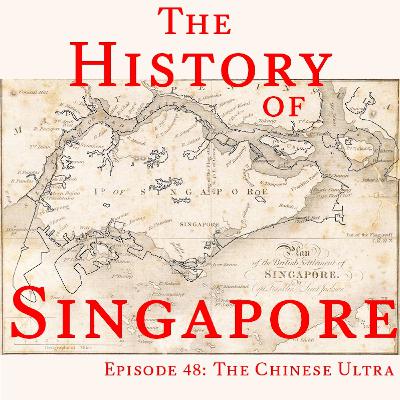
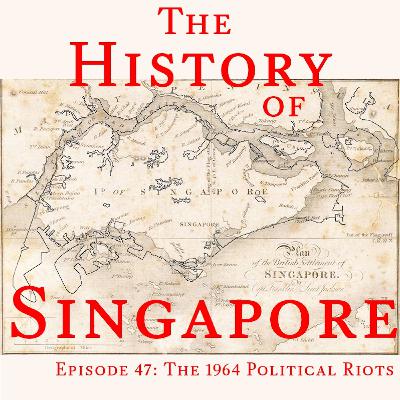
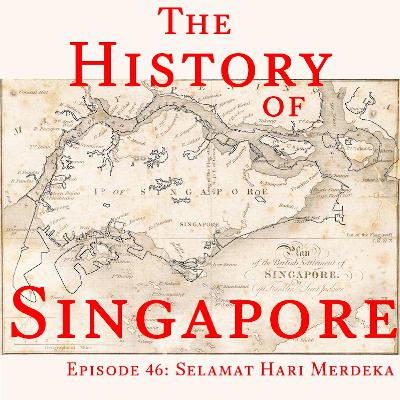



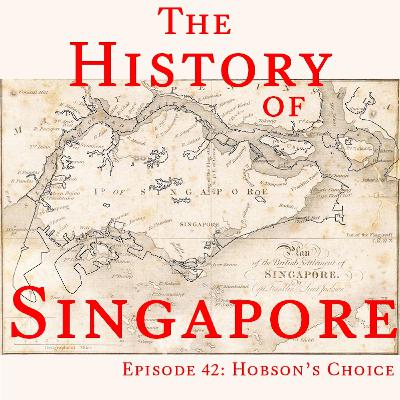



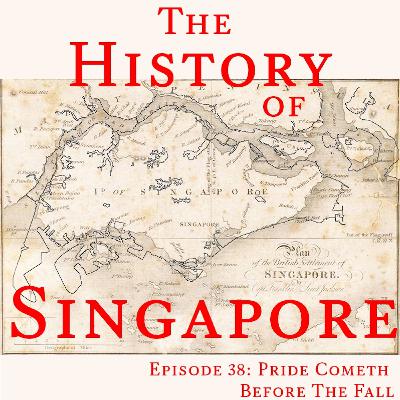
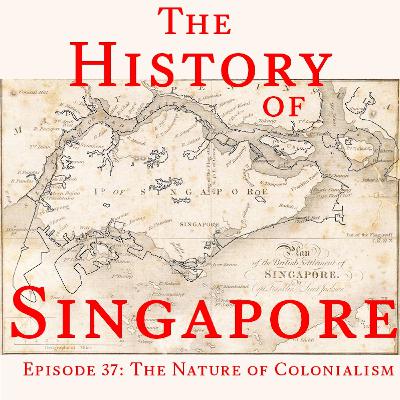
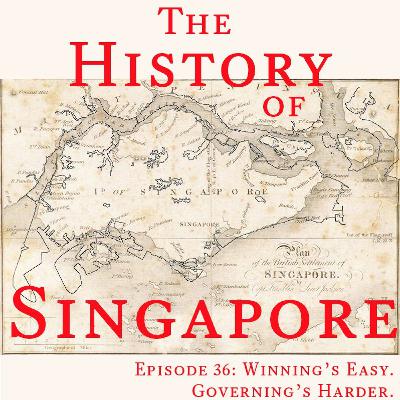
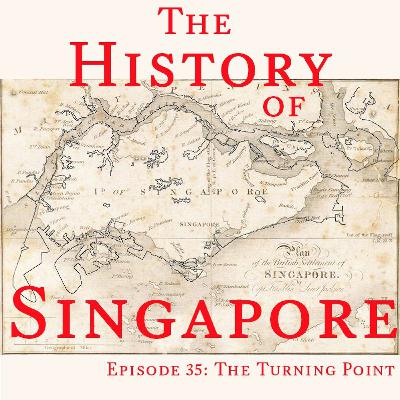
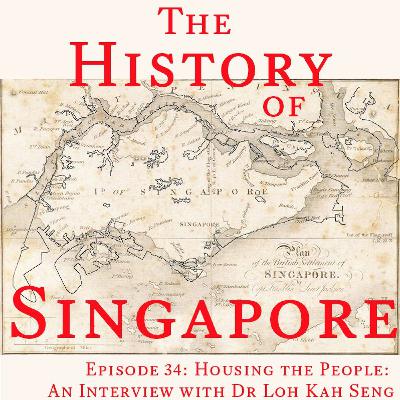

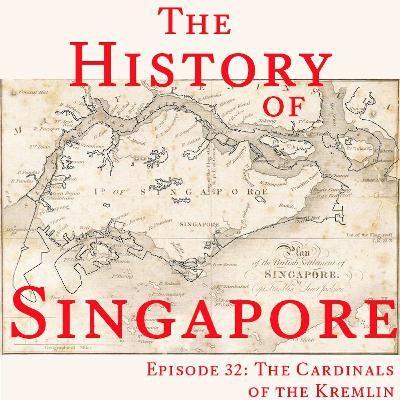




Why did the other episodes go away?
Where are the rest of the episodes 😢
Superb podcast! Intellectually rigorous while being entirely accessible. I'm only 4 podcasts in but will be continuing with this to the end. Well done PJ:)